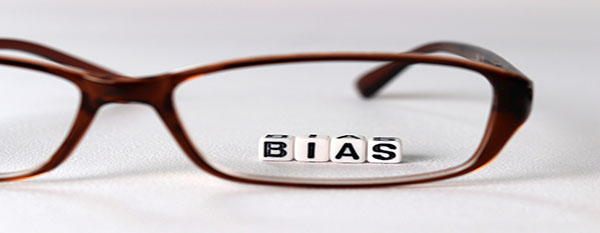By: Cynthia Horn
In employment law investigations, we often spend our days assessing the biases held by the subjects of our investigations — biases against certain races or genders, people’s religions or sexual orientations. But how often do we stop to think about our own biases? You might have already spent time reflecting on what unconscious biases might be influencing you, but do you know about what cognitive biases might also be impacting your investigations? As we begin a new year this month, consider resolving to think critically about your critical thinking.
Confirmation bias
One of the best known cognitive biases, and perhaps the most dangerous for an investigator, is confirmation bias. Confirmation bias describes the tendency to pay more attention to things that confirm an existing belief and to disregard things that disprove that belief. It can also include actively seeking out information that supports our belief. This cognitive bias, like all cognitive biases, operates subconsciously. Confirmation bias exerts a powerful influence on our brains. Investigators can counter its impact by making an intentional effort to remain open minded and flexible in their thinking throughout the course of an investigation, to avoid drawing conclusions too soon, and to actively seek out information that may disprove their beliefs as they form.
Anchoring bias
Anchoring bias describes the propensity to rely heavily on the first piece of information we receive about something, called “the anchor.” As we receive and consider additional information, we tend to view and understand the new information in comparison to the anchor. The anchoring bias is commonly exemplified with prices. For example, imagine you are shopping for new shoes. The first pair of sneakers you look at is priced at $120. The second pair of sneakers you find is on sale for $80. Compared to $120, $80 feels like a good deal. However, if the first shoes had been priced at $40, those $80 sneakers might seem overpriced.
The anchoring bias is usually talked about with numbers, but there is value considering its effect in investigations, too. The first person interviewed in a case is in a powerful position. Their statements and opinions may become an anchor in an investigation and your interpretation of subsequent witnesses and information may naturally be influenced by the first interview.
Authority bias
The authority bias describes our tendency to trust the opinions and judgments of authority figures simply based on their status or position. This is an important bias to pay attention to in a workplace investigation. If you are conducting interviews across an organization, take some time to remember this bias and to test your credibility assessments of witnesses who hold high level positions. The authority bias may lead you more naturally to be persuaded by the opinions of a CEO or PhD. Simply acknowledging that the authority bias exists will help you avoid it.
Halo effect
The halo effect describes the tendency to judge a person’s character based on the overall impression of a person, with particular emphasis on their physical attractiveness and outward appearance. When you speak to someone who is well dressed and well mannered, the halo effect might influence you to believe the person is also smart and good at their job. The halo effect also works in the reverse, causing people to assign negative character traits to those whom they perceive as unattractive or unlikeable. Investigators should watch out for the halo effect in their own judgments, as well as in the judgments and opinions of witnesses.
Confirmation bias, anchoring bias, authority bias, and the halo effect are just a few out of a long list of cognitive biases that have been identified by scientists who study human behavior. Though they influence us unwittingly, taking the time to learn and think about them can greatly reduce their impact on our judgments.
Sources:
https://health.clevelandclinic.org/cognitive-bias
https://www.sciencedaily.com/releases/2021/03/210317111733.htm
https://thedecisionlab.com/biases/authority-bias
https://thedecisionlab.com/biases/halo-effect
https://www.verywellmind.com/what-is-the-halo-effect-2795906

